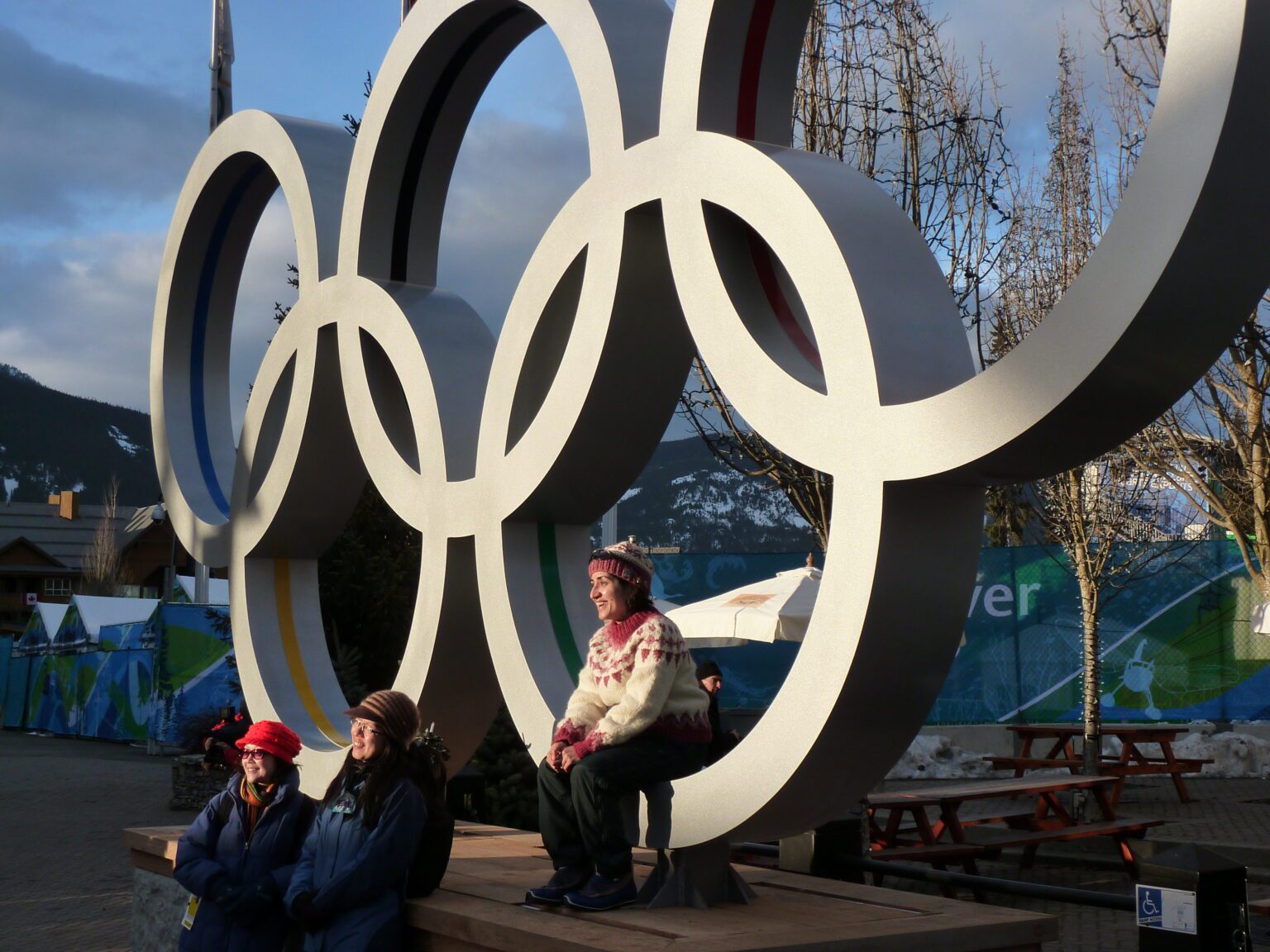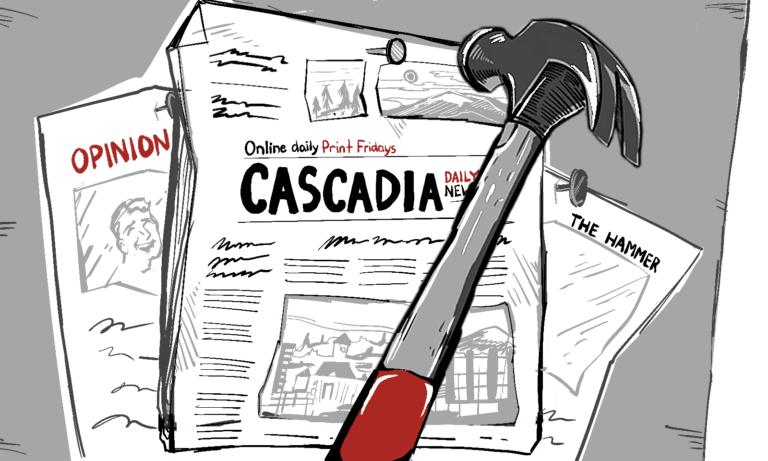The little reminders have arrived for the past two weeks, usually delivered by mobile phone. Some of you know the drill of modern forced recollection.
“X years ago today,” your cloud-storage service of choice reminds you, while perusing lettuce at Fred Meyer, “you were here.”
Too often, it’s a come-down. For me, in early February I was often at a Winter Olympic Games, in some remote mountainous region Decidedly Elsewhere.
This past week, my mind was shoved backward to scenes that qualify as mostly friendly ghosts of Games past: figure; the spires of Temple Square in Salt Lake City, a backdrop to the flames of the Olympic cauldron in 2002; Washington state speedskater Apolo Anton Ohno making an insane pass on the backstretch in Torino, Italy, in 2006.
More recent images evoke the dual joys and horrors of the 2010 Games in Vancouver/Whistler, where a young Georgian athlete met a tragic fate on a sliding course arguably built from the get-go for too much speed.
A personal connection
More so than most people, the Olympics have touched the lives of my family, near and extended. The 2006 Games in fact were a life turning point, not just because we got to see one of Luciano Pavarotti’s later live performances at a Games ceremony. The person sitting next to me in the press section that night later became my wife, Meri-Jo, who also happened to grow up in Lake Placid, New York, a two-time Olympic host village.
In slower moments of late, the newsroom at CDN has been Olympic-themed on its own accord. A friend, longtime colleague and staff member, Deputy Editor Elliott Almond, is one of America’s more-experienced Olympic writers, having covered the last 12 in a row in person.
He, like me, has seen the event through most of its recent highs and lows. And he, almost as much as me, sees the balance swinging, sadly more toward the latter.
A backdrop of greed
The Games are a rich target for a journalist, with human drama and cultural collisions literally around every corner. Their greatest contribution, I’ve always believed, has been not just the moments of personal greatness they present, but their role as the one time the world came regularly together to do something rather than try to kill one another.
But the backdrop of greed — the strong-arming of oft-starry-eyed public forced to bear the cost of mostly single-use facilities, with little sharing of the financial gain — has long lingered like a foul smell that has grown to an unbearable stench.
Their greatest contribution, I’ve always believed, has been not just the moments of personal greatness they present, but their role as the one time the world came regularly together to do something rather than try to kill one another.
In the past four decades the Games have grown from an event that could be successfully hosted in the tiny Adirondacks burg of Lake Placid — then a village not much bigger than, say, modern Lynden — to one so reviled by much of the world that it was forced to flee to the loving, open arms of morally bankrupt and snow-bereft Beijing.
That is a long, strong arc bent decidedly toward injustice.
The tarnishing of the rings by corporate forces dispensing multi-billion-dollar TV contracts should, by itself, long ago have rendered the entire spectacle difficult to stomach for discerning journalists.
But the more-recent sins of rampant athlete doping (see: Sochi, 2014) might prove a death blow to any semblance of the original Olympic ideal. Any description today of medals won on a level Olympic playing field is a fantasy. Little justice was meted out; roll the commercials, NBC.
A conundrum for the fan
The trouble, from the consumer end: For Games fans, severing one’s Peacock feed to late-night women’s hockey or biathlon as a symbolic protest is a disservice to athletes who have spent their entire lives training for a single moment in the spotlight. Some of them have grabbed that Olympic spotlight to amaze us with feats that will forever stand as crowning achievements in fortitude, human decency and even human rights.
My stack of old reporter’s notebooks tells the tale; pick any one of a hundred: Cathy Freeman, an Aboriginal Australian woman clad in all white, striding with pride into an Opening Ceremonies stadium in front of 110,000 Aussies — and a television audience in the billions – to light the Olympic flame and singe the entire soul of a nation.
I could go on. But the youngsters in the room, two of whom returned a blank stare last week when we began extolling the thrills of the 1980 “Miracle on Ice,” have heard enough already.
This is the true challenge of the modern Olympic movement. Those folks are the target audience for today and tomorrow. They know little of the Games former grandeur — why would they? — but quite a bit about its look-the-other-way modern exploitative tendencies. That’s a big problem, and the current brain trust at five-rings corporate HQ in Lausanne, Switzerland, shows little evidence of grasping this reality.
Looking away: gravity pulls back
That’s too bad. Because the Olympics, even at their current worst, in a prison-like COVID confinement that has managed to strip the humans out of the world’s once-greatest celebration of humanity, often still delivers those spine chills, in spite of itself.
It’s right there, on TV, this week. Try to look away. You can’t watch Lindsey Jacobellis, the U.S. snowboarder whose name in 2006 became synonymous with celebrating too soon and biting it at the finish line, hang around for 16 years to claim a gold medal in the same event, without feeling a twinge of joy.
Which is why a week ago, when a group of true believers across our border in British Columbia pulled the compost back from starting sprouts of a bid for a new B.C. Winter Games, hosted by the province’s Indigenous communities, that old cauldron-fired hope might have begun to trickle, if not spring, eternal.
Proceed carefully with that emotion, because that, friends, is the fuel of the Games — for better, and all too often for worse. The Olympic movement of today needs a community-minded B.C. Games more than B.C. needs the Olympics. By far.
That, like the history of the modern Games themselves, feels like both opportunity and danger. Emotion fuels both, for better and all too often, worse.





Planners on both sides of border are on the same (density) page — the wrong one